The Chicago Black Sox and the scandal surrounding the 1919 World Series
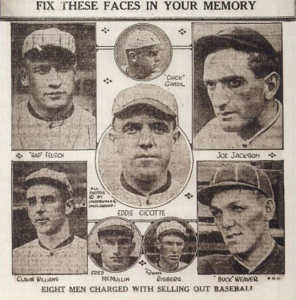
“Regardless of the verdict of juries, no player that throws a ballgame; no player that undertakes or promises to throw a ballgame; no player that sits in a conference with a bunch of crooked players and gamblers where the ways and means of throwing games are planned and discussed and does not promptly tell his club about it, will ever play professional baseball.” Today, almost one hundred years later, all eight of these Chicago White Sox remain permanently banned, their statistics expunged from the official record. This expulsion also affected even consideration for the Baseball Hall of Fame, a punishment that definitely affected Joe Jackson and possibly eliminated Eddie Cicotte and Buck Weaver, as well.
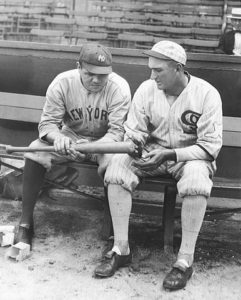
The most prominent member of the Black Sox adopted a nonchalant attitude. Shoeless Joe was quoted, “I’m through with organized baseball,” hinting that he would be just fine with his outside business interests which would be as lucrative as major league baseball.
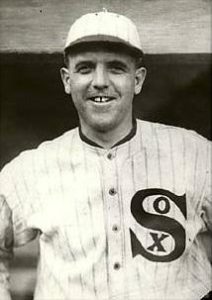
In 1919, Eddie Cicotte, with bonuses and salary, earned $8,000, the second highest sum for a pitcher in the league, only Walter Johnson at 9,500, earned more. Cicotte was also the eighth highest paid player in the league, and the oft repeated legend that Reds game one starter Dutch Ruether earned double what he was making is nonsensical.
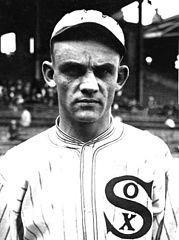
On the road, Cicotte gravitated towards the company of first baseman Charles Arnold “Chick” Gandil, a tough, streetwise veteran player familiar to all of the habitués of taverns, pool halls and hotel bars that Gandil frequently haunted. Although the exact origins and catalyst of the scheme to fix the 1919 World Series has never been specifically documented, it is believed that Chick Gandil and Eddie Cicotte were first approached in late September, 1919, in the vicinity of Boston’s Buckminster Hotel by Joseph “Sport” Sullivan, a well known professional gambler.
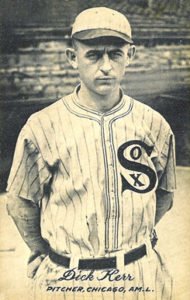
Kerr, 5′ 7″, 155 lbs, was 13-7 during the regular season but was a big drop-off from Cicotte and Williams. He was opposed by Ray Fisher, a solid major leaguer who went 14-5 in 1919. Surprisingly, in Game 3, Kerr produced a three hit shutout, retiring the last fifteen Reds in a row.
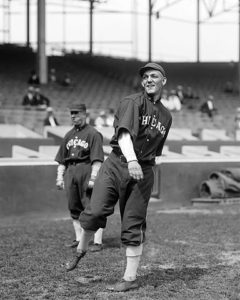
Podcast: Play in new window | Download
Subscribe: RSS
